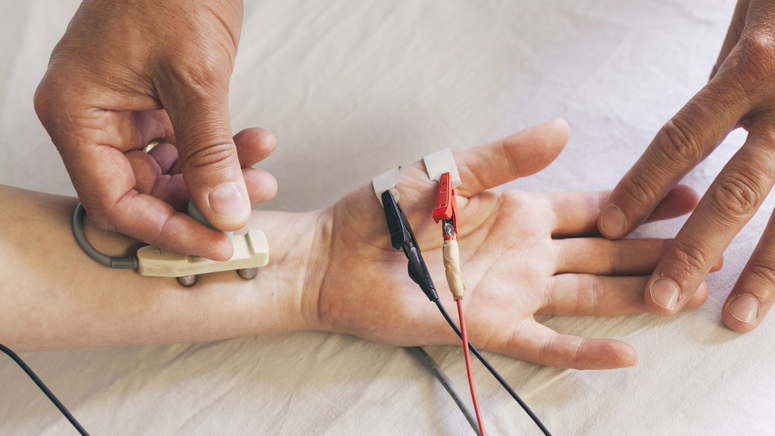What is a nerve conduction velocity (NCV) test? This is a test that is used to assess nerve damage and dysfunction. It is also referred to as a nerve conduction study, the procedure measures how quickly electrical signals move through your peripheral nerves.
Your peripheral nerves begin where the nerve root takes off from the spinal cord. These are nerves that help you control your muscles and experience the senses. You receive electrical signals faster and with greater strength when you have healthy nerves.
With an NCV Test your doctor can differentiate between an injury to the nerve fiber and an injury to the myelin sheath, the protective covering surrounding the nerve. It can also help your doctor differentiate between a nerve disorder and a case where a nerve injury has affected the muscles.
This test is a very effective tool in making diagnosis that helps determine your course of treatment.
Who Is An NCV Test for?

An NCV test is recommended for diagnosing a number of muscular and neuromuscular disorders, such as:
- Guillain-Barré syndrome [1]
- carpal tunnel syndrome
- cubital tunnel syndrome
- Charcot-Marie-Tooth (CMT) disease [2]
- Chronic inflammatory polyneuropathy and neuropathy
- herniated disc disease
- Trauma
- Peripheral nerve injury
- sciatic nerve problems
- muscle disorders
If you show signs of a pinched nerve, your doctor may recommend an NCV test.
With an NCV test usually comes an electromyography (EMG) test. [3] An EMG test is done to record the electrical signals moving through your muscles. This helps detect the presence, location, and severity of any disease that may damage the nerves and muscles.













